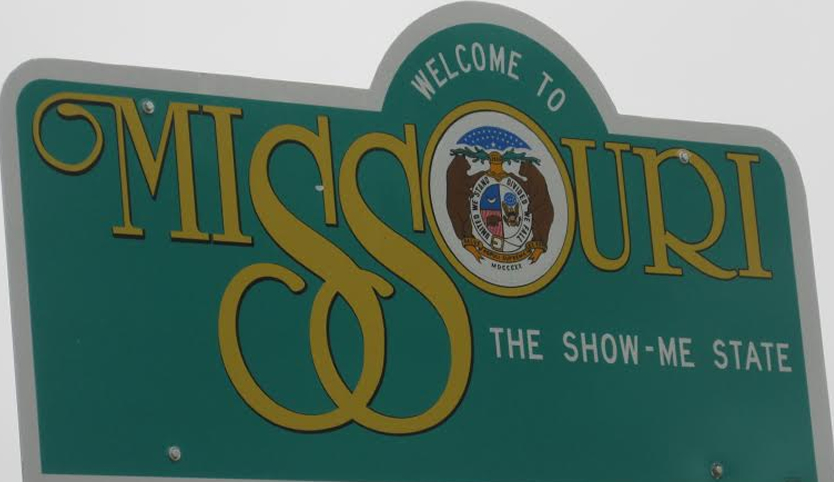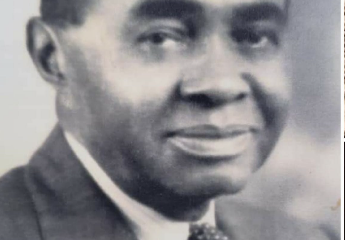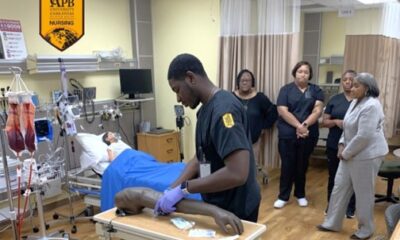News
Missouri NAACP Issues Travel Advisory

At the peak of the summer travel season, the Missouri State NAACP is warning African Americans to exercise caution when visiting the Show-Me State.
“We hope individuals in the state or visiting or traveling through will be aware of what they’re entering into. In Missouri people of color are stopped 75 percent more often than other motorists, and that is based on 16 years of data. It is incredible, and the only other thing is it’s getting worse each year,” says the state’s NAACP President, Rod Chapel.
Chapel cited the data released by the state’s attorney general and anecdotal evidence as compelling reasons for the unusual decision to warn motorists, saying they are “not safe on the roads.” Chapel, who is a lawyer, points to examples of African American motorists being harassed and murdered.
The most recent example involves a young Black man who took a wrong turn on Interstate 55 while driving from his home in Nashville to Memphis. 28-year-old Tory Sanders ended up in the Mississippi County jail in the Missouri Bootheel. Days later, authorities say Sanders “became combative” and fought six officers before he was taken to the hospital where he was pronounced dead.
Chapel says, “Tory ran out of gas outside of Charleston, Missouri. He called his mother who suggested he contact the police for help. Tory was never arrested but ended up in a jail cell where he died. How did that happen? The individual who took the last charge who literally ran into the cell where he was…had no business handling inmates or anyone else.”
That individual was the sheriff in Mississippi County, Cory Hutcheson, whose allegations of criminal wrongdoing already cast doubt on his ability to lead a law enforcement agency. Since then the state Attorney General has removed Hutcherson’s and is promising an investigation into Sanders’ death.
But, during those days in May while Sanders remained in the custody of Hutcheson and his deputies, there were numerous phone calls between Sanders and his mother. Chapel says Sanders’ mother told investigators her son said, ‘They’re trying to kill me in here.’
An autopsy revealed there were no bruises on Sanders’ body, but there were marks from tasers. And, at one point, the sheriff’s department called in a mental health expert to evaluate Sanders, who suffered from depression. The expert reportedly determined that Sanders was fine and should be released. But, Sanders was not released. His family met with authorities and returned to Tennessee to bury their loved one while the cause of death is still undetermined.
Missouri Governor Eric Greitens is also under fire for contributing to a racially biased climate by signing legislation making it more difficult to sue for workplace discrimination. Chappell and a trio of ecumenical clergy met with the Republican governor in hopes of dissuading him by posing an argument based, in part, on one of the tenets shared by most religions. “They said, ‘We have an obligation to look out for the least of these…who are historically disadvantaged and now have lost civil rights protections long fought for,’” recalls Chapel.
Despite the meeting and a rally at the Capitol, Greitens signed the legislation the Friday before the Fourth of July and did so in private. Senate Bill 43 allows lawsuits against employers but not the individuals accused of workplace discrimination, places a cap on damage awards, and applies to discrimination lawsuit involving housing and public accommodations.
Chapel says, “This flies in the face of what we believe to be justice and equality, not only in Missouri, but in the United States.”
The ACLU says Senate Bill 43 will “usher in a new era of ‘acceptable’ racism, sexism and xenophobia in Missouri. This bill makes workplaces potentially more hostile for Missouri’s women, people of color and religious minorities.”
Missouri’s Record on Race
Missouri’s history is a recitation of referendums on race. It was Missouri’s request in 1819 to enter the United States as a slave state that triggered the Missouri Compromise. To maintain the balance of power between the slave and free states, Congress admitted Maine as a free state and Missouri as a slave state. Legislators also passed an amendment establishing a boundary between free and slave regions that were part of the Louisiana Purchase. The effort staved off The Civil War, but tensions continued to escalate between pro-slavery and anti-slavery states.
Decades later in 1857, the Dred Scott case thrust Missouri back into the spotlight. Dred Scott argued that he was a free man because his slave owner had taken him into Illinois, a free state, and Wisconsin which was a free territory. Most of the Supreme Court Justices were from slave states, and the Court ruled that Scott was not a citizen and the Missouri Compromise was unconstitutional. The decision outraged Northerners and further inflamed tensions, setting the stage for the Civil War.
Chapel remembers the stories his family passed down through generations, chronicling their participation in the ongoing struggle for civil rights and social justice. “My family’s been involved with the NAACP since well before Brown v. The Board of Education. They picked cotton on a neighbor’s land to send money to fund the litigation that became Brown v. the Board of Education,” he says. “And, they mailed the money from a different town to avoid attracting attention from the KKK which would have had significant and swift reprisal.”
Ironically, Chapel is leading the NAACP in Missouri at a time when race relations in America are strained and the country is deeply divided along racial lines. As a frontline advocate in a state with Missouri’s history and the nation’s current climate, Chapel admits there are some major challenges.
Marshalling the spirit of advocacy learned from his family’s legacy, he insists, “Informing the public about the attacks is critical. And for people who are concerned, Americans and Missourians who may or may not be people of color but believe in the Golden Rule as a spiritual guidepost or moral underpinning or at least have a fundamental understanding of Constitutional rights, must come together whether it’s the NAACP or a faith-based organization or another civic organization to insist that protections are made or to seek redress when violations occur.”

-

 Black History5 months ago
Black History5 months agoThe untold story of a Black woman who founded an Alabama hospital during Jim Crow
-

 Featured8 months ago
Featured8 months ago‘No Closure’ In Town Where Five Black Residents Were Either Murdered, Died Suspiciously Or Are Missing
-

 Black History9 months ago
Black History9 months agoBlack History Lost and Found: New Research Pieces Together the Life of Prominent Texas Surgeon and Activist
-

 Featured9 months ago
Featured9 months agoFounder of “The Folding Chair” Podcast Calls Montgomery’s Brawl ‘Karma’
-

 Featured8 months ago
Featured8 months agoThousands ‘Live Their Dream’ During National Black Business Month
-

 Featured10 months ago
Featured10 months agoJuneteenth And ‘246 Years Of Free Labor’ Are Key To Conversations About Reparations









